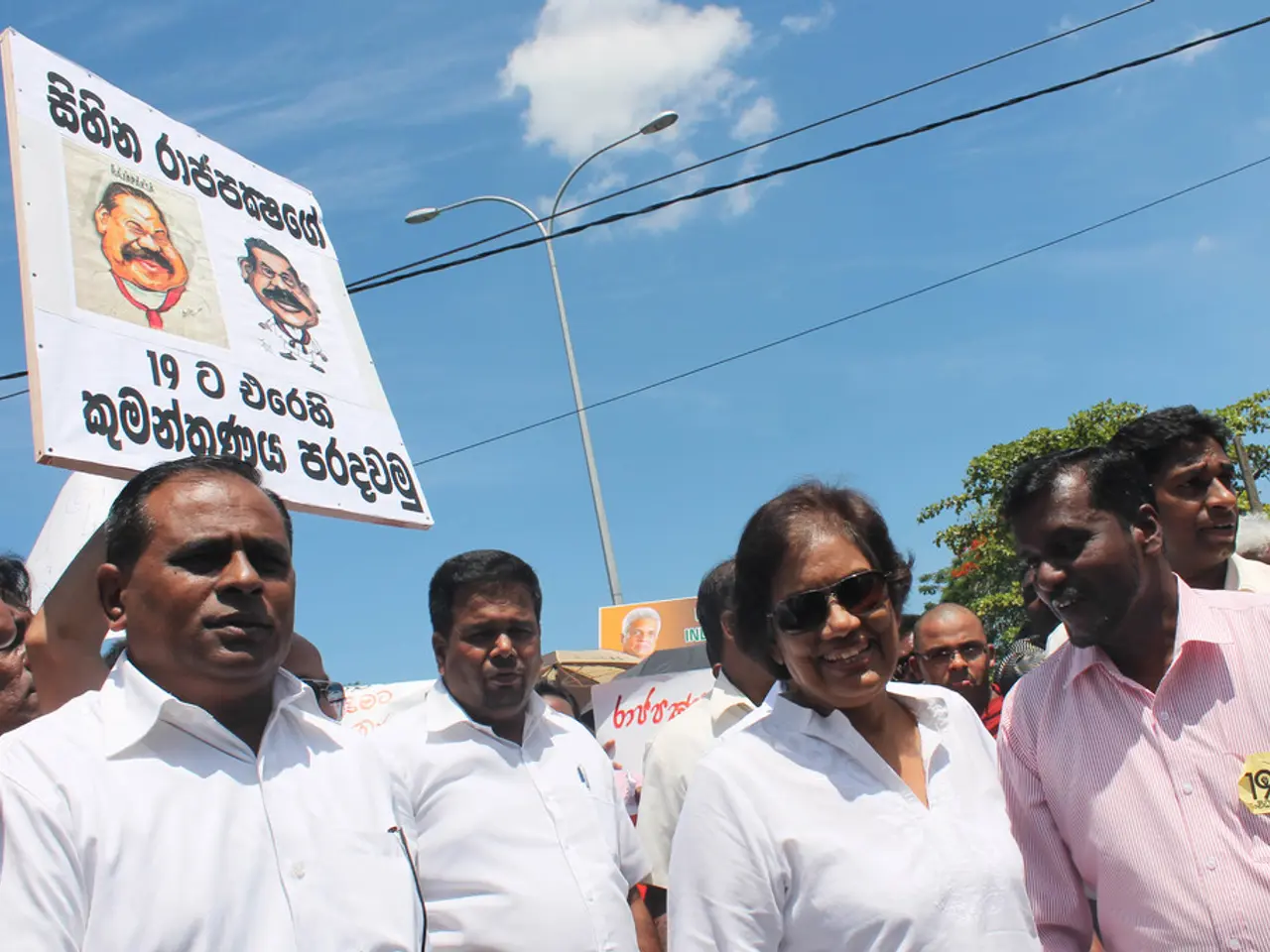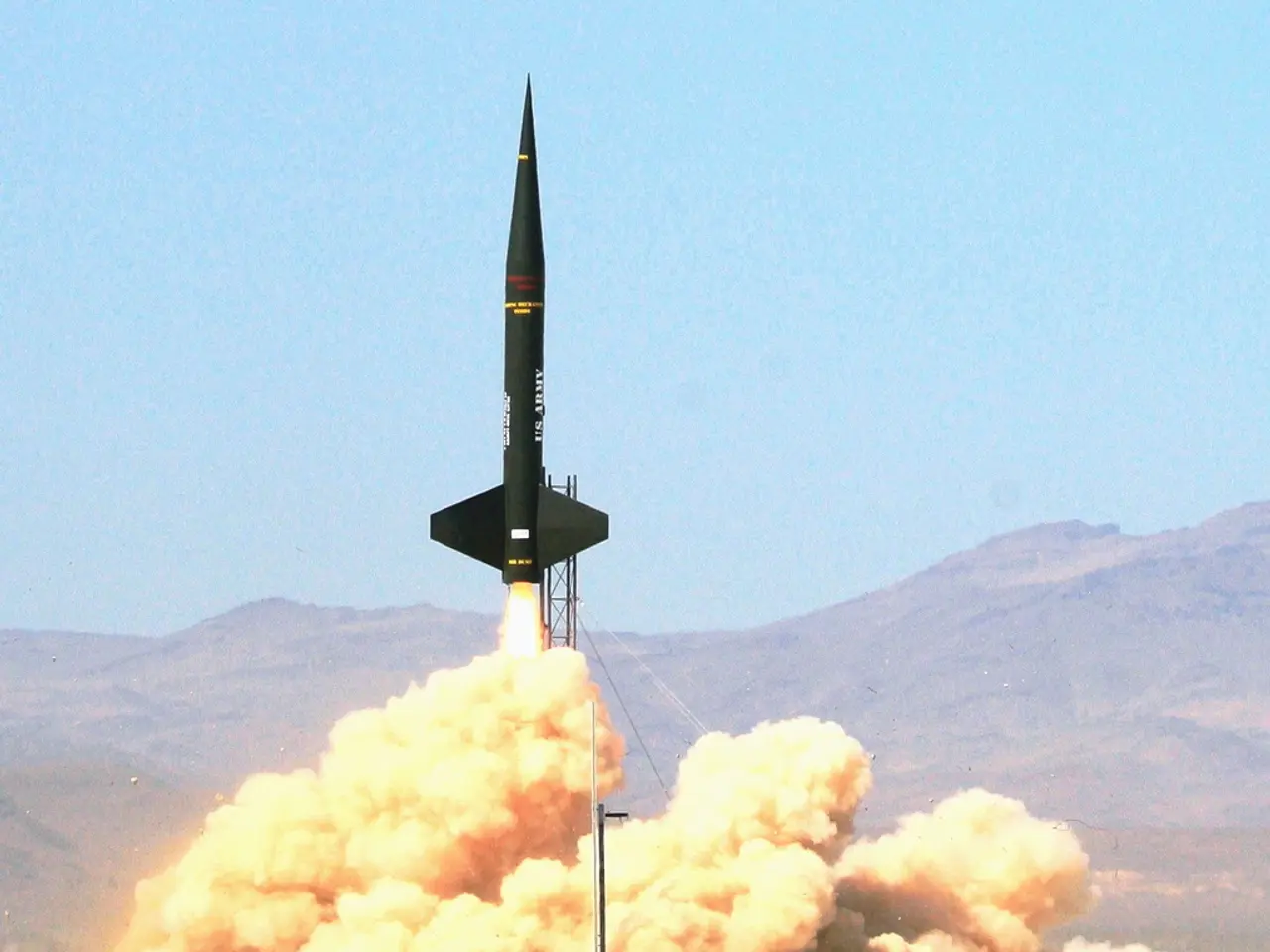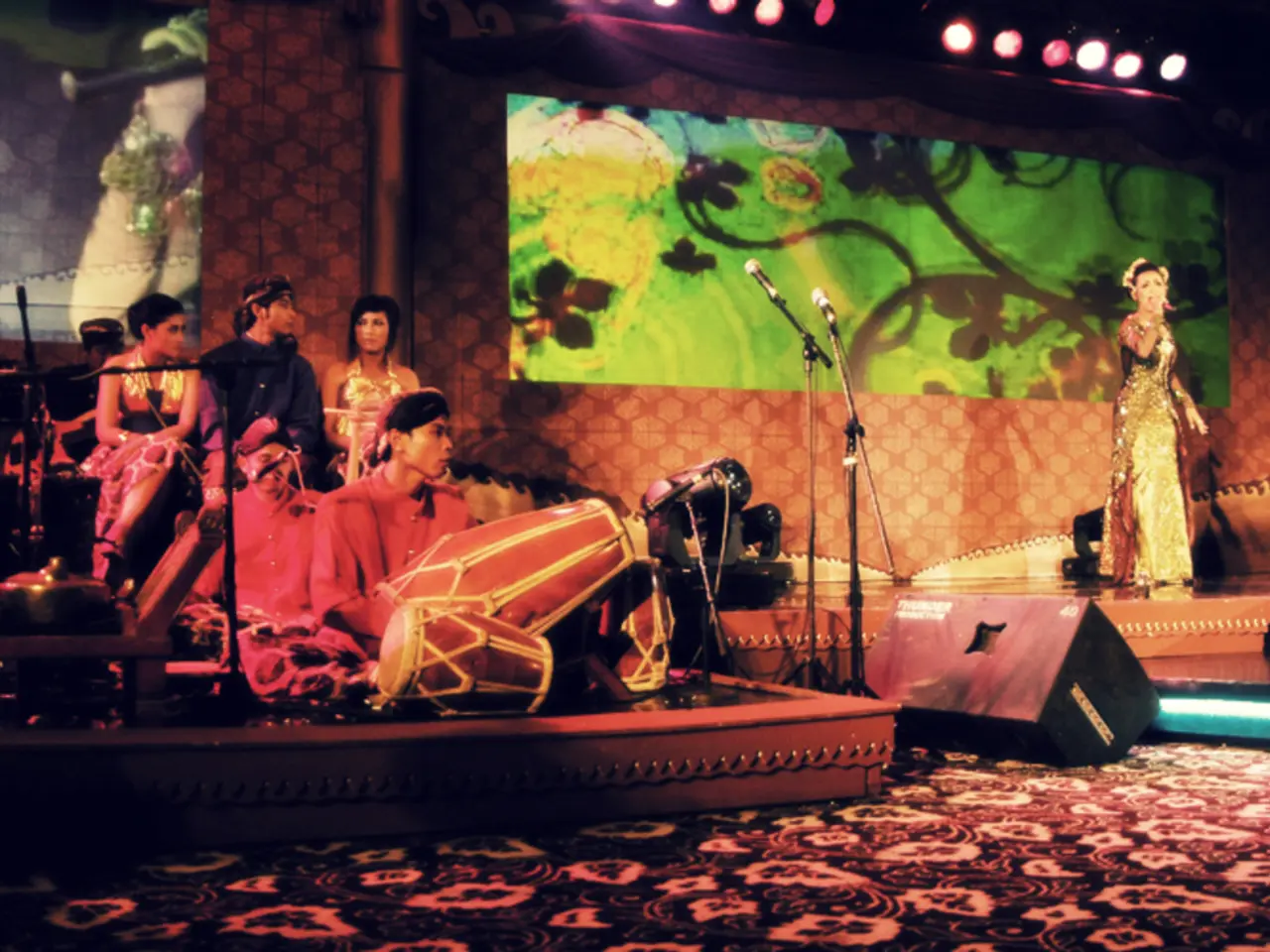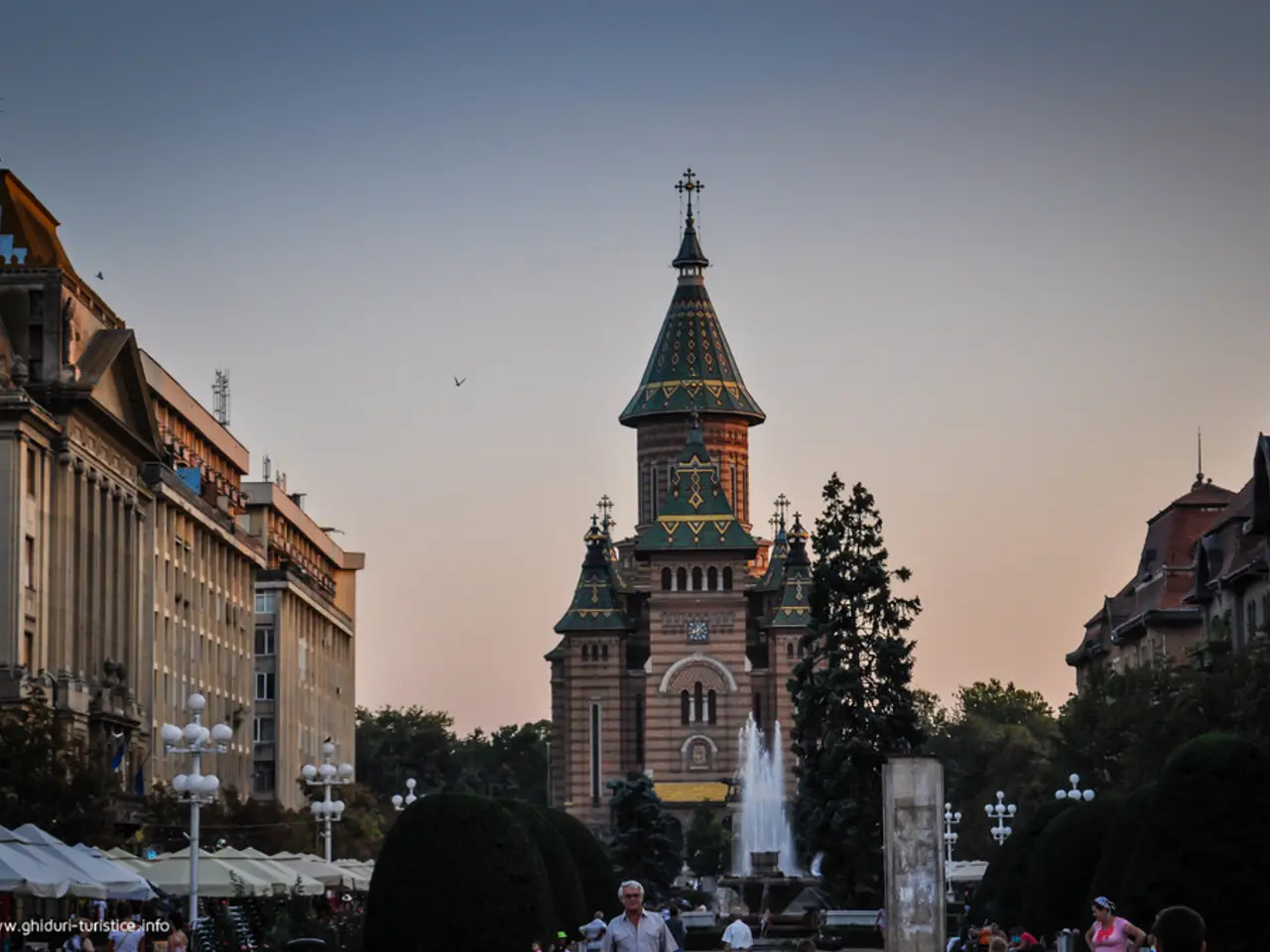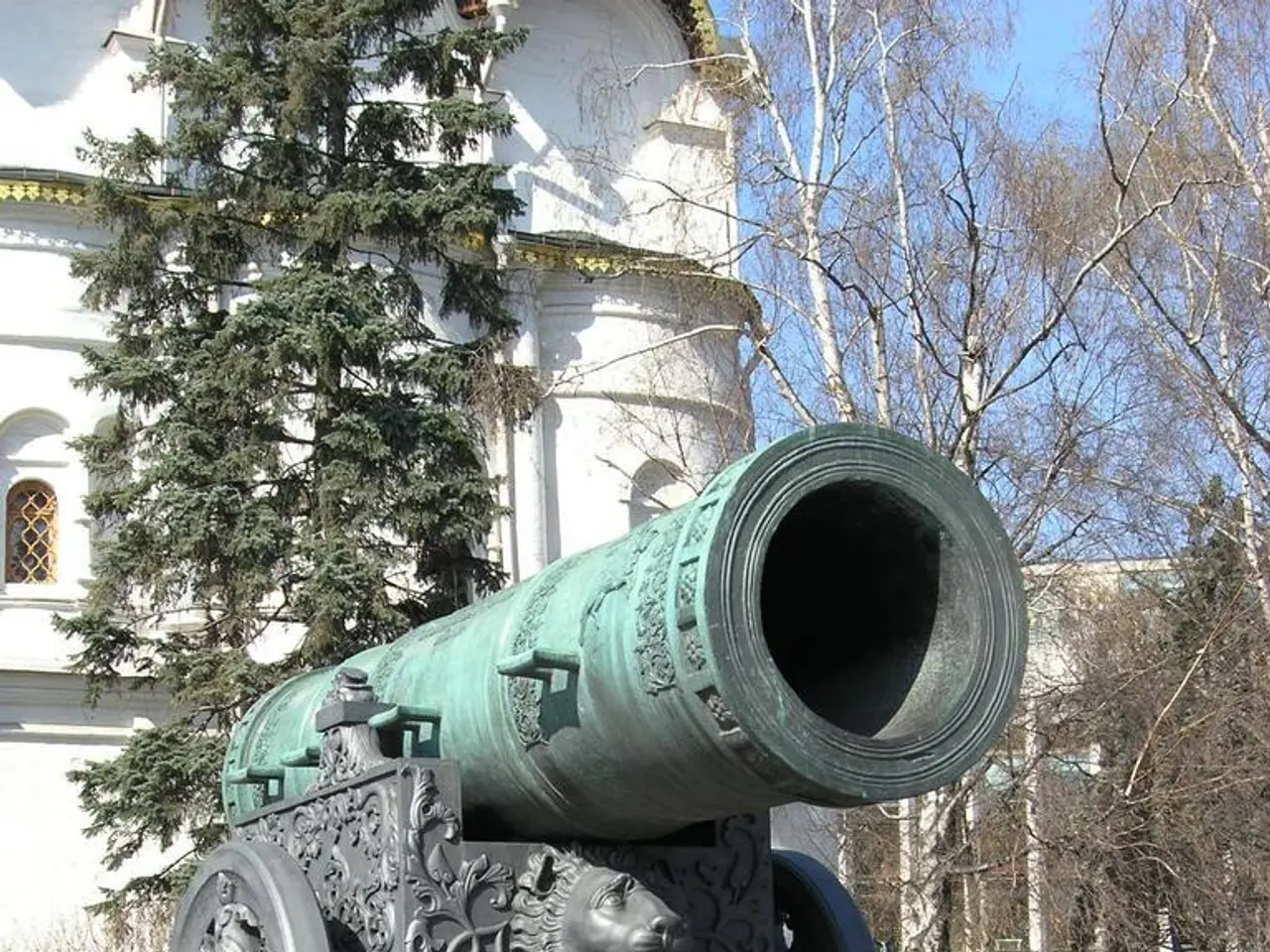Lukashenko, an ally of Putin, declares he will not run for another presidential term in Belarus.
In the heart of Minsk, the capital city of Belarus, Alexander Lukashenko, the country's long-standing president, made a surprising announcement. In a video interview conducted by US Time magazine, Lukashenko, who is currently serving his seventh term, stated that he is "not planning" to seek another term in the 2030 election [1][2][4].
This announcement comes five years after a wave of mass protests erupted against Lukashenko's rule following an election that demonstrators believed was rigged. The brutality with which the demonstrations were put down resulted in the imprisonment of over 1,200 political prisoners, a fact that remains a stark reminder of the ongoing political unrest in Belarus [5].
Lukashenko, who is 70 years old, has been ruling Belarus as president since 1994, making him one of the longest-serving leaders in Europe. He emphasised that it is time for Belarus to move on from his long presidency, but the decision ultimately depends on the people. He also ruled out the possibility of his son succeeding him, stating that the next leader should be someone from within the system who understands Belarus's challenges and can maintain independence and stability amid pressures from both Russia and the West [2].
Despite indications of stepping back, Belarus under Lukashenko remains a repressive state facing international criticism for political persecution and media censorship [5]. In addition to this political transition outlook, Lukashenko recently announced plans to open Belarus to 150,000 migrant workers from Pakistan, a move raising concerns in neighboring countries and among Belarusians [1].
The ongoing imprisonment of political prisoners highlights the continued suppression of dissent in Belarus. The elections in January 2021, won by Lukashenko, were seen internationally as neither free nor fair. As the country marks the fifth anniversary of the mass protests, it is reported that around 1,200 political prisoners remain behind bars [6].
In summary, while Lukashenko continues in office, he has clearly conveyed that he intends to end his presidency after the current term, preparing for an eventual transition but without naming specific successors or detailed plans for political change [1][2][4]. The future of Belarus remains uncertain, with the political landscape continuing to be shaped by the ongoing unrest and the decisions yet to be made by Lukashenko and the Belarusian people.
References:
[1] The Guardian. (2025, August 25). Lukashenko hints at stepping down in 2030. Retrieved from https://www.theguardian.com/world/2025/aug/25/lukashenko-hints-at-stepping-down-in-2030
[2] BBC News. (2025, August 25). Lukashenko: I won't seek another term. Retrieved from https://www.bbc.co.uk/news/world-europe-61336630
[3] US Time Magazine. (2025, August 25). Lukashenko's surprising announcement. Retrieved from https://time.com/61336630/lukashenko-announcement/
[4] The New York Times. (2025, August 25). Lukashenko's hint at stepping down. Retrieved from https://www.nytimes.com/2025/08/25/world/europe/lukashenko-step-down.html
[5] Amnesty International. (2025). Belarus: Human rights crisis under Lukashenko's rule. Retrieved from https://www.amnesty.org/en/countries/europe/belarus/report-belarus/
[6] Human Rights Watch. (2025). Belarus: Political prisoners remain behind bars. Retrieved from https://www.hrw.org/news/2025/08/25/belarus-political-prisoners-remain-behind-bars
- In the United Nations, discussions about human rights in Belarus continue to emphasize the release of political prisoners, highlighting the ongoing suppression of dissent in the country.
- The potential opening of Belarus to 150,000 migrant workers from Pakistan has sparked concerns about migration policy in the region, with neighboring countries and local Belarusians raising questions about the impact on job markets and social services.
- Amidst the political transition and international scrutiny, the general news remains active with reports of accidents and crime in Belarus, including car accidents and instances of crime and justice.
- Recently, a series of fires in Belarus have raised questions about disaster response policies and the state's preparedness for handling emergency situations, adding another layer of complexity to the country's political landscape.
- The future of Belarus is uncertain, with academic and political debates continuing in the realms of war-and-conflicts, policy-and-legislation, and political science, as experts try to understand the long-term implications of Lukashenko's decision and the eventual transition of power.
